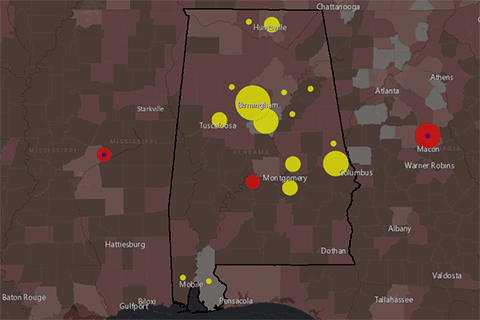
Samford’s humanities and social sciences faculty are engaged with every aspect of human experience, including how we cope with pandemics. As professor Jonathan Fleming was using geographic information to document the spread of COVID-19 this spring, Samford history, religion and psychology faculty were finding unexpected new applications of their scholarly specialties too.
As American churches and governments continue to grapple with the legal and theological implications of pandemic shutdown orders, History department chair Jonathan Den Hartog explored how different understandings of religious liberty might be balanced for the health of both Constitution and community. Read his Christian Post essay on Religious Freedom and Covid-19.
Beyond the basics of how and when to safely reopen, religious congregations also face the challenge of reconnecting with their own vitally important social networks. Religion and sociology professor Jennifer McClure–Congregational Research Strategist for Samford’s Center for Congregational Resources (CCR)–offered insight into the many ties that bind congregations in her new article for the Interdisciplinary Journal of Research on Religion. Her research documents the joint events, friendships between ministers, ministerial groups and pulpit exchanges that combat the loneliness and isolation that tear at congregations and take a grave toll on ministers. Download a summary of Connected and Fragmented: Introducing a Social Network Study of Religious Congregations.
As students, parents and educators adjust to ongoing disruptions at all levels of education, internationally celebrated psychology professor Stephen Chew addressed their concerns with a new essay and video that build on the extensive public resources he has created to help improve learning and teaching. His essay on What Pandemics Can Teach Us About Critical Thinking and Metacognition describes how the critical thinking skills that emerge during times of crisis can assist in decision making and problem solving. His new video–How to Learn in Pandemic Times–presents the science of information processing, warns against common choke points and pitfalls in learning and offers reassurance in an upended education environment. “If you understand the principles of how the brain learns, then you’ll be able to adapt to whatever situation you might find yourself in,” Chew notes in the video. “Regardless of the place you find yourself in, learning only takes place in one location, and that’s inside your brain.”
